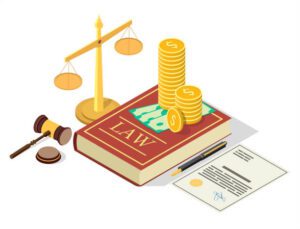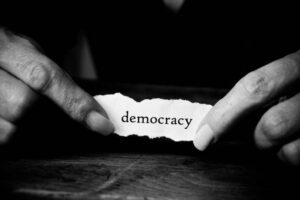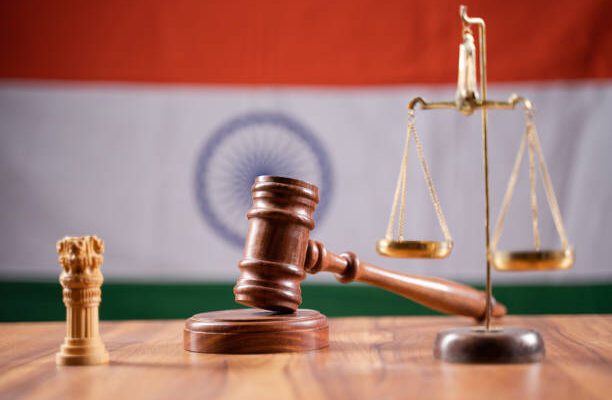Political confusion is the root of the world’s problems today, whether it be in the Arab world’s quest for democracy. The US and Europe’s struggle with poor decision-making, or China’s lack of reason online.
What makes a political system ideal? Should it be dictatorial, democratic, or another type of government?
In actuality, our understanding of political systems is insufficient. Whilst there are many different varieties, since the Enlightenment. Few political ideas have been developed that truly have historical significance. Compared to well-known scientists, the world has seen fewer philosophers like Jean-Jacques Rousseau and Karl Marx. Large-scale research into political systems is likewise quite uncommon.
 (Photo from istock)
(Photo from istock)
Question of ideal political system!
Political structures in contemporary society must simultaneously assure stability, effectiveness, and democracy. Political systems in the West that have been democratic since the industrial revolution were formerly regarded as the pinnacle of government.
Yet as its formidable adversary, the erstwhile Soviet Union, fell apart, issues appeared out of nowhere. Socialism in the mould of the Soviet Union produced astounding efficiency, but it ultimately came to an end because democracy was neglected and living conditions were not addressed.
Although the Western system offers democracy, it is less effective. The ongoing riots in Britain have highlighted the risks associated with social unrest. There are significant obstacles to these systems’ ability to adapt to a changing world.
We strive for a flawless political system that can inspire people, remedy missteps, and alleviate pain. A system like that doesn’t exist, though. Politics cannot be solved by ideals. As the ideal system is unknown, it sometimes rests on luck whether revolutions around the world are successful. Although though copying others can help you succeed, there are much more failures than successes.
America and Europe formerly enjoyed wealth thanks to democracy. Can politics provide an explanation for why these capacities are currently waning? Political discussions across the globe are more heated than ever. Socialism had an aggressive past, but after the Cold War, capitalism took control of politics.
Understanding political system
This is not a theoretical disagreement; rather, it is complicated by too many competing national interests and ideologies. In actuality, no political structure exists that is capable of resolving all global problems. We still don’t comprehend political systems well enough.
Although Western democracy is highly effective in many ways, it is not the only path that nations can take. We may learn from Western democracies as China sits at a reform crossroads, but it’s more crucial that we go past our fundamental national situation.
We must always keep in mind that we do not fully understand what democratic politics actually entail, and that even Western nations can only know their recent history and uncertain future.
Features of perfect democracy
 (Photo from istock)
(Photo from istock)
- The minimum characteristics of a perfect democracy would be:
- Effective involvement: Members of the démos have the chance to express their opinions about a policy to other members before it is approved or rejected.
- Voting equality: Voting for or against the policy is available to démos members, and all votes are treated equally.
- informed populace. Members of the démos have the chance to learn about the policy, its alternatives, and their anticipated repercussions within a reasonable length of time.
- Agenda-setting by the people. The decision-making agenda’s contents and organization are determined by the démos. So, the democratic process is “open” in that the démos can alter the association’s policies at any time.
- Every single démos member has the right to take part in the association in the methods previously mentioned.
- Essential rights: Every one of the requirements for a perfect democracy specify a right that is also a requirement for a perfect democracy.
Every member of the demos has the right to interact with others, the right to have his vote counted equally with the votes of others, the right to gather information, the right to participate equally with other members, and the right to exercise agenda-setting authority alongside other members.
Ideal democracy
The characteristics of an ideal democracy are, to the extent they exist, achieved through a number of political institutions in contemporary representative democracies. These institutions were essentially new in human history when they made their first appearance in Europe and the United States in the 18th century, despite major disparities in constitutional structure between the various nations.
The institution of representation itself, through which all significant government decisions and policies are made by publicly elected people who are answerable to the electorate for their actions, is undoubtedly one of the most significant of them. Other significant institutes are:
- Elections that are fair, open, and frequent. Anyone can take part in these elections as candidates and voters.
- freedom of speech. Without fear of repercussion, citizens are free to publicly express their opinions on a wide range of politically significant issues (see freedom of speech).
- sources of information that are impartial. There are sources of political information that are independent of the government or any one particular group, whose right to print or otherwise disseminate information is recognized by law, and who are also accessible to all citizens.
- freedom to assemble. People have the freedom to start and join independent political organizations, such as interest groups and parties.
But as they developed, it became increasingly obvious that they were necessary for any political association as large as a nation-state to achieve a tolerable level of democracy.
Does an ideal political system exist?
In a group as large as a nation-state, representation is necessary for effective participation and citizen control of the agenda; free, fair, and regular elections are necessary for effective participation and voting equality; and freedom of expression, access to independent sources of information, and the right to form associations are all necessary for informed voters, effective participation, and citizen agenda control.
References:
Britannica
Thinking about why we need Political Parties, click on the link below:
Why do we need Political Parties




